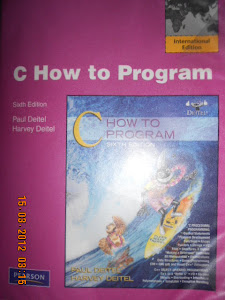The statement
y = floor( x + .5 );
will round the number x to the nearest integer and assign the result to y.
Reads a number and print the original number and the rounded number.
/*
title: roundingNumbers
author: aeriqusyairi
date: Jan22 2012
source: exercise 5.10 Chapter 5
*/
#include<stdio.h>
#include<math.h>
double roundToInteger(double);
double roundToTenths(double);
double roundToHundreths(double);
double roundToThousandths(double);
int main(){
float number = 0;
printf("Enter a number to round:");
scanf("%f", &number);
printf("Original number: %.5f\n", number);
printf("Round to nearest integer: %.5lf\n", roundToInteger(number));
printf("Round to nearest tenths: %.5lf\n", roundToTenths(number));
printf("Round to nearest hundreths: %.5lf\n", roundToHundreths(number));
printf("Round to nearest thousandths: %.5lf\n", roundToThousandths(number));
system("pause");
return 0;
}
double roundToInteger(double toRound){
return floor(toRound + .5);
}
double roundToTenths(double toRound){
return floor(toRound * 10 + .5) / 10;
}
double roundToHundreths(double toRound){
return floor(toRound * 100 + .5) / 100;
}
double roundToThousandths(double toRound){
return floor(toRound * 1000 + .5) / 1000;
}


No comments:
Post a Comment